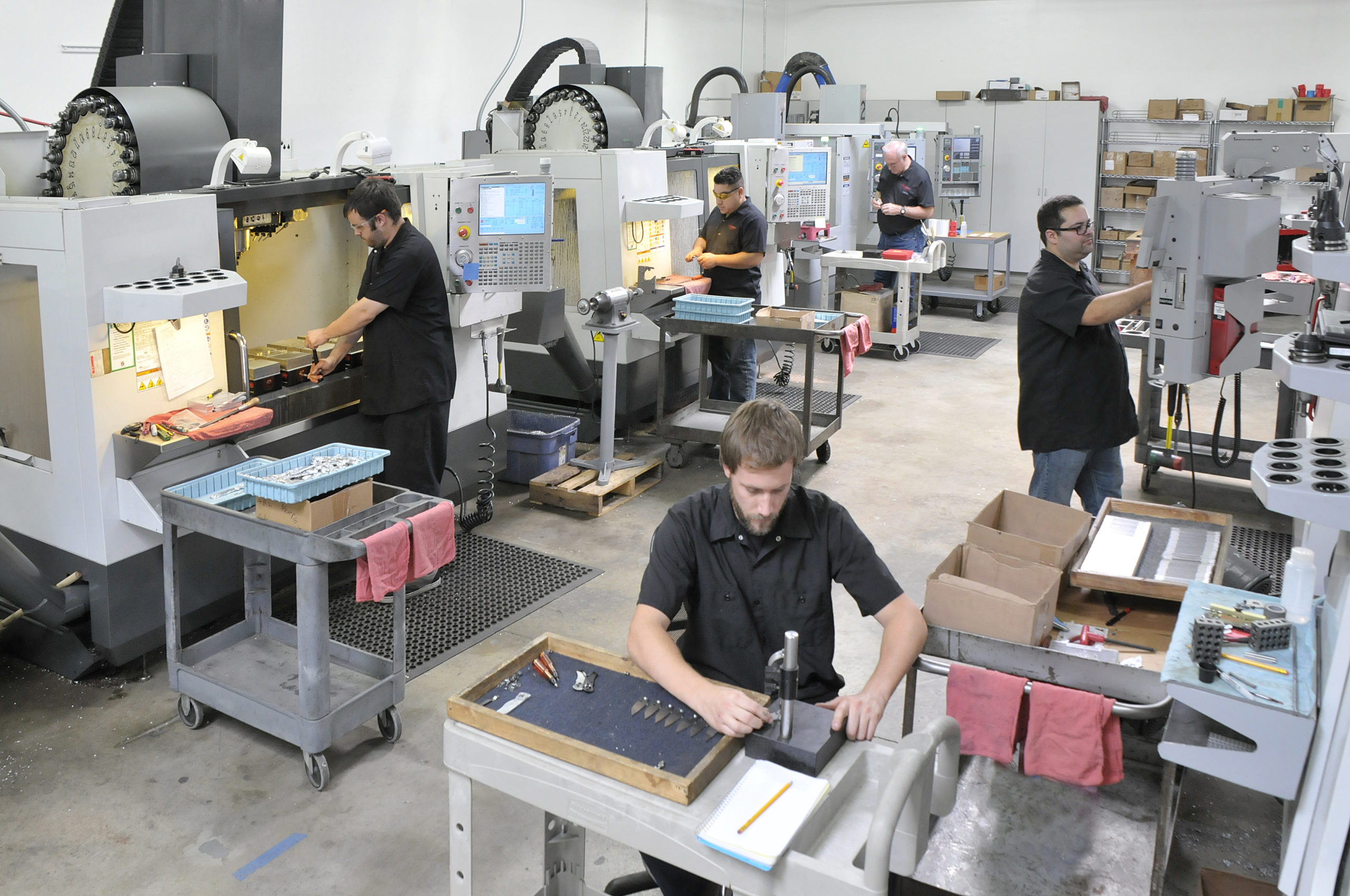Table of Contents
If you’re interested in learning about Computer Numerical Control (CNC) machining, you might be wondering about the cost of training. With the growing demand for skilled workers in this field, it’s no surprise that many people are curious about the associated costs.
CNC training can range in price depending on a variety of factors, including the type of training you choose and the location of the training center. In this article, we’ll explore the different types of CNC training available and provide insights into the costs you can expect to pay. So, whether you’re looking to start a new career or simply expand your skill set, read on to learn more about the cost of CNC training.
CNC training cost varies depending on the program, school, and location. Community college programs can cost between $500 and $3,000, while technical schools can range from $10,000 to $25,000. Online programs can be less expensive, ranging from $500 to $5,000. Some employers offer on-the-job training, which can be free. Apprenticeships are another option, but they typically require a longer time commitment. It’s important to research and compare different options to find the best fit for your needs and budget.
Understanding the Cost of CNC Training
Factors That Affect CNC Training Costs
CNC (Computer Numerical Control) machines have become an integral part of the manufacturing industry. As such, the demand for skilled CNC operators has risen substantially. CNC training programs have been developed to provide individuals with the necessary skills to operate these machines. The cost of CNC training can vary depending on several factors.
The first factor is the type of training program you choose. Some CNC training programs are conducted online, while others are in-person. Online programs tend to be less expensive than in-person programs because they do not require the use of physical facilities.
Another factor that affects the cost of CNC training is the duration of the program. Some programs are short, lasting only a few weeks, while others can last several months. Longer programs tend to be more expensive than shorter programs because they cover more material.
The third factor that affects the cost of CNC training is the reputation of the training provider. Well-established and reputable training providers tend to charge more for their services. This is because they have built a reputation for providing high-quality training that leads to successful careers.
Types of CNC Training Programs
There are several types of CNC training programs available, each with its own unique cost structure. The most common types of CNC training programs include:
1. Online Courses – These courses are conducted entirely online and tend to be the least expensive option. Online courses typically cost between $500 and $2,000.
2. In-Person Courses – These courses are conducted in a physical classroom or workshop setting. In-person courses tend to be more expensive than online courses because they require the use of facilities and equipment. In-person courses typically cost between $2,000 and $5,000.
3. Apprenticeships – Apprenticeships are on-the-job training programs that provide hands-on experience with CNC machines. Apprenticeships tend to be the most expensive option because they involve paid work experience. Apprenticeships typically cost between $5,000 and $10,000.
The Benefits of CNC Training
Investing in CNC training can lead to several benefits, including:
1. Increased Job Opportunities – CNC machines are used in a variety of industries, including manufacturing, aerospace, and automotive. By completing CNC training, you will have the skills necessary to pursue a career in any of these industries.
2. Higher Earning Potential – CNC operators are in high demand, and as such, they tend to earn higher salaries than other manufacturing workers. According to the Bureau of Labor Statistics, the median annual wage for CNC operators is $44,190.
3. Career Advancement – CNC training can provide you with the necessary skills to advance your career. With experience, you may be able to move into supervisory or management roles.
CNC Training vs. Traditional Education
CNC training programs are often compared to traditional education programs, such as college or vocational school. While both options can provide valuable skills, there are several key differences between the two.
1. Cost – CNC training programs tend to be less expensive than traditional education programs. This is because they are typically shorter in duration and do not require the same level of resources.
2. Time – CNC training programs can be completed in a matter of weeks or months, while traditional education programs can take several years.
3. Focus – CNC training programs are designed to provide specific skills related to CNC machine operation, while traditional education programs provide a broader range of skills.
In conclusion, the cost of CNC training can vary depending on several factors, including the type of program you choose, the duration of the program, and the reputation of the training provider. While CNC training programs can be expensive, they can lead to increased job opportunities, higher earning potential, and career advancement. When compared to traditional education programs, CNC training programs tend to be less expensive, take less time to complete, and provide more focused skills training.
Frequently Asked Questions
In today’s fast-paced technological world, the demand for Computer Numeric Control (CNC) operators and programmers has increased significantly. CNC training is essential to acquire the necessary skills for working with CNC machines. However, the cost of CNC training can be a concern for many individuals. Here are some frequently asked questions and answers about how much CNC training costs:
1. How much does CNC training cost?
The cost of CNC training varies depending on several factors such as the type of training, location, and duration of the training program. The cost of a short-term certificate program can range from $1,000 to $5,000, while a more comprehensive degree program can cost up to $20,000 or more. The cost of online CNC training is comparatively lower than traditional classroom-based training.
The cost of CNC training is also influenced by the location of the training program. Training programs offered in metropolitan cities are generally more expensive than those offered in smaller towns or rural areas. However, the quality of training and the reputation of the training provider should also be considered before selecting a training program based solely on the cost.
2. Are there any free CNC training programs available?
Yes, some training programs offer free CNC training courses. However, these courses may not be as comprehensive as paid courses. Free courses are usually introductory and cover only the basics of CNC programming and operation. Moreover, these courses may not provide hands-on training, which is essential for developing practical skills.
Some community colleges and vocational schools offer free or low-cost CNC training for students who meet certain eligibility criteria. These training programs are funded by the government or private organizations to support the growth of the manufacturing industry.
3. Can I get financial aid for CNC training?
Yes, financial aid is available for CNC training programs. Students can apply for federal or state financial aid programs, such as grants, scholarships, and loans, to cover the cost of their training. Private organizations also offer financial assistance to eligible students.
To qualify for financial aid, students must fill out the Free Application for Federal Student Aid (FAFSA) form and meet the eligibility criteria. The eligibility criteria include income, academic performance, and enrollment status.
4. Are there any additional costs associated with CNC training?
Yes, there may be additional costs associated with CNC training programs. These costs may include textbooks, course materials, software, tools, and equipment. Some training programs may also require students to purchase personal protective equipment (PPE) such as safety glasses, gloves, and earplugs.
Students should consider these additional costs when calculating the total cost of CNC training. Some training programs may provide these materials and equipment as part of the tuition fee, while others may require students to purchase them separately.
5. How long does CNC training take?
The duration of CNC training programs varies depending on the type of training and the level of expertise. Short-term certificate programs can take between 6 weeks to 6 months to complete, while degree programs can take up to 2 years or more. Online training programs are usually self-paced, and the duration depends on the student’s learning pace.
The duration of CNC training is also influenced by the student’s prior knowledge and experience in the field. Students with prior experience in manufacturing or machining may require less training than those with no experience. However, hands-on training is essential for developing practical skills, and the duration of training should be sufficient to provide adequate hands-on training.
In conclusion, CNC training can be a valuable investment for individuals looking to enter the manufacturing industry or advance their career in the field. The cost of CNC training can vary depending on factors such as the length of the program and the location of the training facility.
However, it’s important to remember that the cost of CNC training is a small price to pay for the valuable skills and knowledge you’ll gain. With the demand for skilled CNC operators and programmers on the rise, investing in CNC training can lead to a lucrative career path.
So, if you’re considering pursuing CNC training, be sure to research your options and find a program that fits your budget and career goals. With dedication and hard work, CNC training can be a worthwhile investment in your future.
Request a quote today!
Please compress the file into a ZIP or RAR file before uploading. Alternatively, send through your RFQ by email.
enquires@unitymanufacture.com





